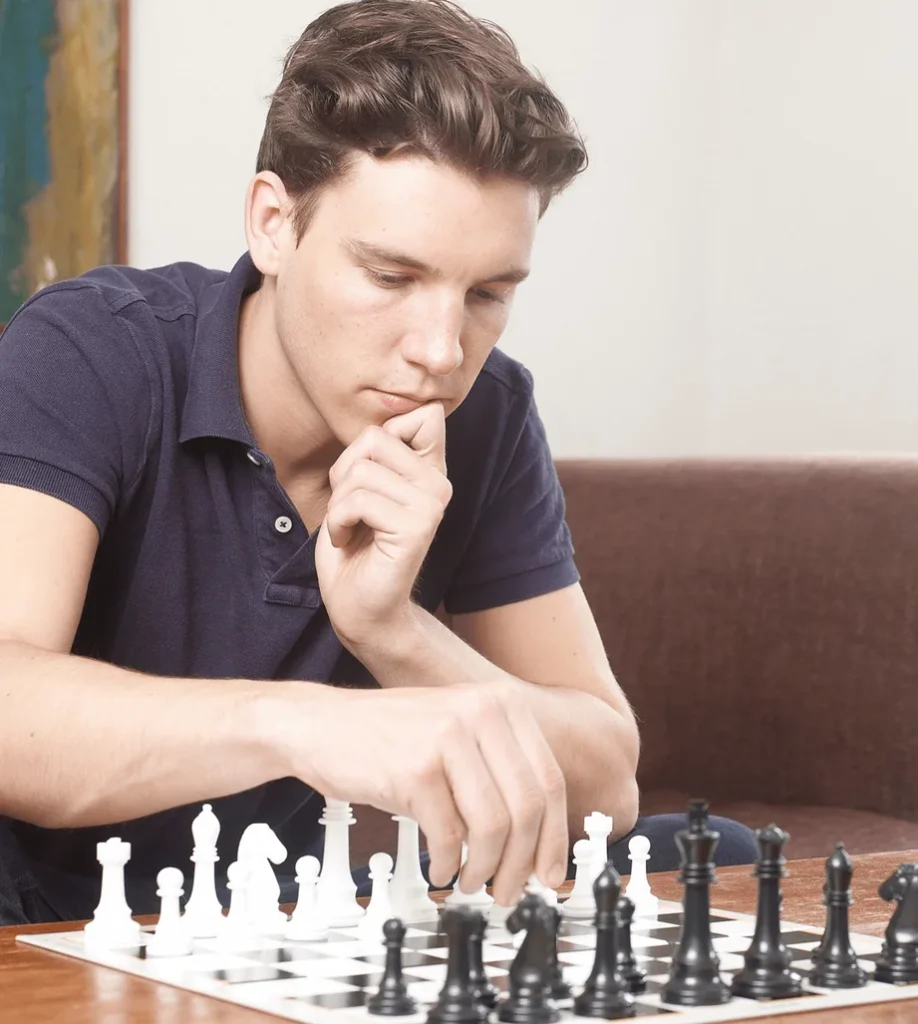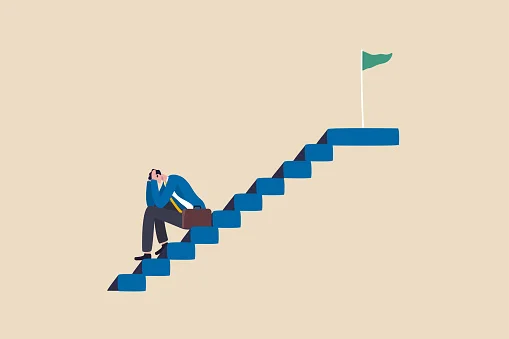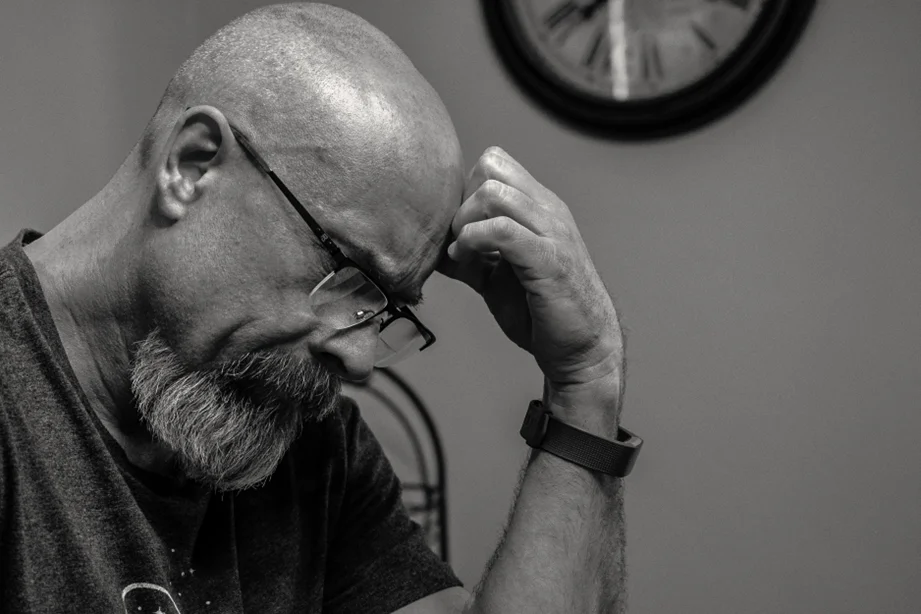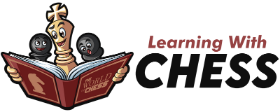Psychology in chess for mental athletes
17/06/2023 - Actualizado: 31/07/2023
Many times we have heard that psychology is very important in all the things we do in our day to day life. Especially, when it comes to compete as in the case of chess, where we are alone against our rival, where there is no team that can help us to win, all the pressure falls on us.
But few times we are told what is the right psychology in chess, how to manage our emotions when we are navigating in them while we try not to get checkmated, how to act and think when we play an opponent that on paper (ELO rating) is superior to us, how to handle our mistakes (we have to remember that we are human and that sooner or later we will make a mistake, this is the reason why competition exists, because of the human factor) and just as important how to handle our successes when we are on a roll and we think we are the new Bobby Fischer or Judit Polgár of chess.

In my career as a chess instructor I have had the obligation to find answers to some of these concerns so that my students can get their best chess version and that the psychology in chess is not an anchor or a hindrance in their competitions, since sooner or later we have to learn these things, in one way or another.
So now I come to share with you what I have learned about mindset thanks to chess, based on my experiences with my students, things that work and that can help you so that your mindset is a rocket that drives you to your best level and not an anchor that weighs you down without letting you move forward.
(When I talk about psychology in chess, I am referring to everything that goes on inside our heads when we are training, when we are competing and when we are reflecting on what happened.)
Psychology in chess
Trust
I'm going to start with something that I believe is the driving force of every sportsman or mental athlete (as I like to call us 😄😄😄😄) which is TRUST.
The trust to make a sacrifice when we have to if we believe it is the best thing, no matter who our opponent is, whether it is our neighbor who is just starting to play chess or Magnus Carlsen himself. To have the trust to play an opening, to enter a certain midgame or endgame.

What I tell my students is that the trust in oneself is EARNED with work and effort, it is not enough to repeat to ourselves that we can do anything. This is in vain because we can not fool ourselves and deep down we know that we do not train enough, the most logical thing is that we get nervous and do not know what to do when we are under time pressure.
The games are won at HOME, thanks to the training and preparation that we have undergone, when we get to the competition we just have to show all that we have learned with our work.
Trust without a work behind that is supporting it only turns into arrogance and believe me the blow is much harder when we realize that our rival, whom we believe we should win easily, ends up giving us a lesson on how to play chess, all thanks to the fact that he did prepare and train enough, while we arrived with the faith that we could win.
Preparation and work is a fundamental part of our psychology in chess.
"There are no secrets to success. It is the result of preparation, hard work, and learning from failure." — Colin Powell
Fear Of Failure
Continuing with the analogy of the automobile, we have already talked about our engine, now it is our turn to talk about the fear of taking the wheel and driving, or rather the fear of failing or making a mistake.
It is normal to be afraid of making mistakes, but what is not normal is to let it stop us.
That it does not let us sacrifice a rook for a pawn and open the castling of the opponent's king, even when according to our calculations and analysis, after the sacrifice we have a very promising position. But our fear that we are skipping something or any ghost that usually crosses our mind does not let us play what we know we have to play and instead we only develop a piece and miss the opportunity to take a big advantage and possibly a very nice victory.

As I said before mistakes are inevitable, when we train we only reduce the possibility of making them and that the mistakes are less gross.
If we believe and prove with our calculation that this is the right thing to do, there is no reason not to do them, even if it is against Magnus himself. And if it turns out that it was a mistake, we will gain valuable experience and learning, which in time will help us to become specialists in destroying the castling of our opponents.
If we let ourselves be carried away by fear, we are wasting all our training and effort made at home, just because we don't want to make a mistake.
In chess psychology, mistakes are not a reason to feel bad, but to see them as an opportunity to keep improving.
If being wrong leaves us a valuable lesson for our chess in the future, being wrong becomes the best move.
Manage our success
Now that we have our engine ready, now we dare to take the wheel and drive, now we feel like driving at 300km/h all the time, or rather, once we are confident in our work and we dare when we have to do it, the moment comes when we start to win more games, we start to win important tournaments, we win many games in a row without losing and we think we are the kings of the world, at that moment we have to be very careful, we may be poisoned with our own success.

We must not let ourselves be intoxicated by our victories, as Kasparov said, one of his greatest secrets to be at the top of world chess was that he analyzed his defeats as well as his victories.
There is always something we could have done better even in the games we won, by looking at it this way we will keep ourselves present and constantly improving where we will learn from our victories and defeats, in other words, there is no such thing as a case from which we will be defeated, we will only have more lessons to learn.
If we learn from our defeats and also from our victories, in addition to being a tough athlete to beat, we will be even stronger with our chess psychology.
If you liked the article, you can check the first part where I tell you how I realized how important is the mindset.
Tell me how important is psychology in chess for you?
⭐️ If you want to know more about other articles similar to Psychology in chess for mental athletes you can visit our category Learn About Chess. We are waiting for you inside 👍



Leave a Reply